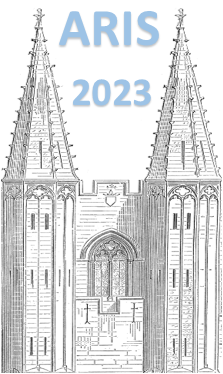Orateur
Description
Radiation-detected Nuclear Magnetic Resonance (RD-NMR), especially in the form of beta-NMR in solids hosts, is an extremely sensitive NMR approach, which has been used in nuclear structure studies over the last few decades, allowing to determine magnetic and quadrupole moments of selected unstable nuclei.
RD-NMR applications in chemistry, biology, or medical diagnosis – performed on short-but also long-lived spin-polarised nuclei in liquid or gaseous samples – are much more recent but growing. Such studies are performed by our ISOLDE team as part of interdisciplinary collaborations with colleagues from other institutes. Beta-NMR on laser polarised short-lived sodium and potassium nuclei has already allowed us to study the arrangement of low-vapour ionic liquids which might be suitable for car-battery material and is being used to investigate binding of DNA G-quadruplex structures around alkali metals. A development of beta-NMR on longer-lived isotopes polarised using chemical methods known in conventional NMR in zero-to-ultra-low fields (ZULF) might lead to ultrasensitive and highly portable NMR devices. Finally gamma-detected MRI signals after spin-exchange optical pumping of long-lived Xe isomers might be used as a new medical imaging modality.
This contribution will cover the principles of RD-NMR, followed by the description of selected experimental setups and examples of ongoing studies from across the fields.

